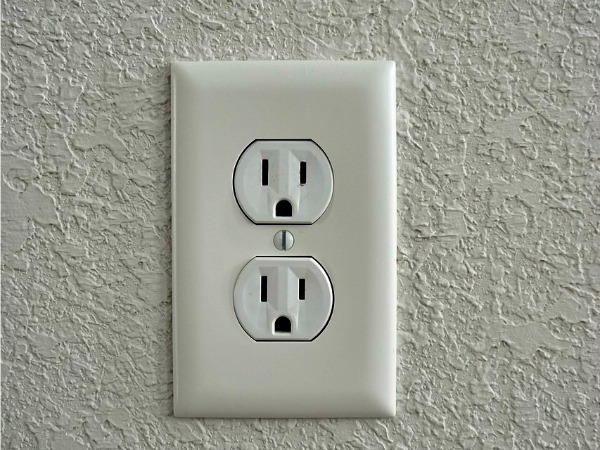Nowadays, imagining our life without electricity feels so awkward, right? I mean, look at how dependent we are on it. Electricity truly was a revolutionary discovery.
But, aside from all that, electricity can prove to be catastrophic if not cared for correctly. That is why knowing basic electrical safety tips at home is paramount.
You must have heard the phrase: “Precaution is better than cure.” You can take several precautionary measures to stay safe.
However, you also know that things happen how they are supposed to, not how you want them to.
For that reason, if things get out of hand, it is always better to consult an expert electrician in Santa Monica if you are a Santa Monican.
Still, here are some of the basic and most important electrical safety tips at home and what to do if something is wrong with your electrical appliances.
Most Important Electrical Safety Tips at Home:
Don’t Overload the Outlet:
I think overloading the outlet often turns out to be the core of many other electrical problems. Don’t plug more than one or two plugs into the outlet simultaneously.
Especially if you are trying to plug a major appliance into the outlet, make sure there isn’t any other plug plugged there. But it is better not to plug big devices into an outlet but a switch on the wall.
Don’t Leave Your Appliances Plugged in Unnecessarily:
It is the same as overeating; what happens when someone eats too much? He gets sick. The same goes for electrical appliances.
When you leave them plugged in mostly overnight, they get overheated due to a high inflow of electricity and no outflow.
Don’t Put Cord Wires Under the Carpets:
This is one of the most common mistakes people make in their homes. You must’ve seen this, too. Carpets or other rugs catch fire instantly.
And when these wires are placed under the carpet, they are constantly exposed to damage. If it’s damaged – problem; if it gets overheard – problem; if it catches fire, you know the drill, right?
If the ship has sailed and the wire has been damaged, take some time off your busy schedule to replace it before you are compelled to do so.
Electricity & Water Aren’t Good Friends:
Even though water plays an important part in electricity production, they don’t seem to see eye-to-eye once the work is done.
And it is no alien concept. You don’t have to be an electrician to know that keeping electrical cords and other gadgets away from water is among the most important electrical safety tips at home.
Keep Electrical Appliances Away from The Reach of Kids:
It goes without saying that kids are the most exposed to electrical threats than any other person in a house.
That’s because they don’t know the difference between the harmful and the beneficial. First, you should keep a close eye on what they are doing.
Also, if you don’t want to restrain your kids from roaming in the house, you should keep the electrical cords, gadgets, and appliances up safely, so there’s no room for mistakes.
What To Do If Something Is Wrong?
Despite taking all the precautionary measures, you can never be sure that there won’t be any electrical problems for you in the future.
Here are some electrical safety tips if things go south in your home.
Find The Breaker Box and Cut the Power Supply:
Unsurprisingly, the most important thing to do in case of an electrical issue is to cut the electric power to stop it from causing additional harm.
Cutting it is not enough; you’ll have to make sure there’s no power in that particular circuit, plug, outlet, or anything else. If you are unsure in any way, it is best to contact an electrician in Lansdale, PA or wherever you are and get them to do the work for you.
Always Keep a Fire Extinguisher on Hand:
It is always better to kill the nib in its bud. If you see a small fire breaking out from an electrical cord, quickly grab the extinguisher and put it out.
You must have heard and seen that water is the best way to put out a fire; to some extent, it is. But water is a conductor, and throwing water on an electrical fire will make things worse for you.
Try to Keep Two, Three, or Four Outlets at Home:
As mentioned above, plugging several appliances into the same outlet will overheat it and cause an issue. That’s why it is better to have two or three outlets at home to distribute the workload.
From time to time, touch those outlets to see if they are cool enough or are getting hot. It’s a better way of detecting a problem before it escalates into something worse.
Consult An Expert Electrician:
If the ship has sailed and the wire has been damaged, take some time off your busy schedule to Call Milestone, or a local electrician wherever you are, and replace it before you are compelled to do so.
You’ll be doing yourself a favor.
Conclusion:
All the above-mentioned measures are the basic and most essential electrical safety tips at home. Let me know in the comments if something is missing. Thanks.
Related Posts:
- How to Protect Your House from Electric Accidents?
- Most Common Reasons Your Electric Bill is Through the Roof & What to Do
- Where To Add Extra Electrical Outlets When Building A New Home
- 5 Advantages of an Electric Fire at Christmas
- How to Make Your New House Safe for Your Family
- Top Gas Safety Tips for New Home Rental Tenants
- 8 Safety Hazards at Home You Might Not Be Aware Of